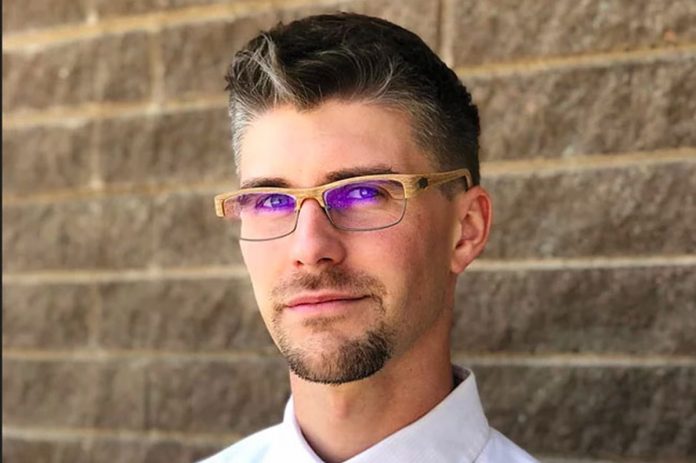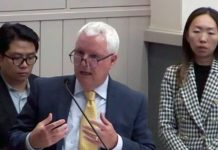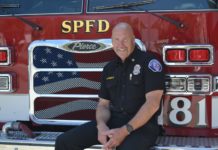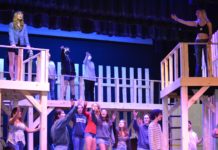
College entrance: “?”
Even feeling certain is an uncertainty in today’s highly competitive environment.
We all know that the process of gaining acceptance to the right college or university is uncertain and stressful, and many adults (parents) overlook the students’ hidden doubts. Don’t forget that, for many students, the entire process seems like an insurmountable task. Selecting, applying to, and qualifying for a university is a process wrought with anxiety and uncertainty.
Meet an expert who changes the game: Robert Powers.
Robert Powers, founder of College Torch: College Counseling, has dedicated himself to alleviating the pressures that can trouble students and their families. His passion lies in developing the student’s potential within themselves – their talents, intelligence, ambitions, accomplishments, and style. It’s not about forging a better college candidate; it’s about an individual, focused, strategic process that ultimately frees the student from the shackles of doubt and information overload.
He works personally with every student that goes through the College Torch program. Robert attributes all his pupils’ successes to their own inner strength and drive, assuming more of a guiding role to naturally discover a student’s true path. South Pasadena resident, student, and Art Center graduate Eric Fabbro sat down with Robert for an exclusive interview discussing his philosophy and curated educational strategies.
How did you come to the conclusion that you wanted to help students discover the path to their dream college?
Robert: When I was in high school doing applications, I knew that with my friends there was a lot of fear. With me it was the opposite experience. My parents supported me no matter what, and they didn’t worry about my college application… so I actually felt a bit unmoored. I really related to students, even when I was a teacher at public schools. They would come to me with their fears, and I would give them advice unofficially. I wondered if I could offer a more regular kind of support for students before they start the college applications they’re so worried about.
The age that you begin working with students starts at the Junior High School level. It seems a little intimidating thinking about college that early on, but is all too common given the current academic climate. What approach do you normally take to ease students’ nerves?
Robert: So my background is in teaching and I’m always coming into my meetings with students as a teacher. Having discussions with the younger ones, the conversations will sound different.
Before you can know where to start when selecting a college, let alone what to type in to Google, you’ve got to know what you want, what you like, maybe what you want to do, even just what your interests are… and middle schoolers are still figuring that out. If they were allowed to leave the house for a full day – for eight hours – what would they do? Where would they start? Where would they go? They’d be drawing blanks. They know that stuff matters to them, they know it matters to mom and dad, but it’s valuable to have the full conversation.
Having an extensive background in classical studies and Latin, do you have any particular phrases that you’d like to share with those who are seeking guidance?
Robert: I come back to the phrase “mea culpa,” which is Latin for, roughly, “my bad.” With being a human, especially being a young human, making mistakes is part of the experience. If you embrace making those mistakes, there’s a whole lot of progress to be made and there’s a whole lot of celebrating to do even if things don’t go your way. You have this huge opportunity for progress, so my advice is celebrate the mistakes.
How might you ease a student’s anxiety about feeling directionless?
Robert: Students are often already doing what they want to do. They don’t realize, but they’re doing some form of it.
I really often have students come to the first meeting and I ask, “What are your activities?” and they tell me about doctor’s appointments and video games. Sometimes they don’t tell me any true extracurricular activities that day, but then maybe two weeks later they’ll say “Oh yeah! I’ve had this bow and arrow in my garage since I was eight, but that’s something I just do for me, it’s not really much of an activity.”
But then I ask, “Well when was the first time you saw a bow and arrow? TV? A book? A movie?” and they may say,
“Oh, I saw it in this historical documentary.”
“What about that historical scene really spoke to you?” and suddenly we’re talking about history majors. Their real interests will show up in lots of different ways.
It seems some students already know what track they want to pursue. Do you ever see them switching gears?
Robert: Some students may know that they want to be a neurosurgeon, and I’ll have them do the reading – actually read a stack of books about neuroscience – then they’ll all of a sudden change their tack and say “I think I meant psychology.” Then they’re no longer working in the life sciences; they’re into social science.
Colleges want students to have an open mind. They want them to try everything. There’s a statistic that a student will change their major an average of three times in college. Some may change majors even more times than that. At Hopkins, my roommate moved from Near Eastern Studies to, somehow, an Italian language major.
You’re very passionate about helping young people reach their potential. Do you have any success stories that may have surprised you during your career?
Robert: My first year of teaching I had a student ask me about American University: “Should I go? Should I not go?”
I told her, “ Look, you love Spanish class, and you also love helping people. American University is going to help you take those passions wherever you want to go in life.”
Now she’s in Ecuador with this organization that helps bring companies and colleges and students down to the Amazon. They’re living within the communities to get these stereotypes out of their head.
We’re thinking of maybe doing a partnership in a year or two and bringing College Torch students down to Ecuador as well. That’s where I like to see my students eventually end up, at a point where they’re out helping communities, and then they come and talk to me, and maybe we can do that together.
What brought you to the LA/Pasadena/Metro area?
Robert: I came to San Gabriel Valley because I felt that people understood what I was trying to do.
When I meet South Pasadena students and families, I can see the emphasis they put on the future of children twelve to eighteen years old. The work that they’re doing is an investment for the future. I feel like there’s a lot of good that I can do here with those families.
If you had to choose three crucial elements that are central to a student’s success when applying, what would they be?
Robert: Number 1 – that they take care of their academics. They’re proving that they have the college mindset. Students need the academic skills not just to get into college but also to stay there.
Another thing would be a colorful application. Not particularly saying “I’m one-of-a-kind, super unique” but more along the lines of, “I’m a Computer Science major who’s into Civil War reenactments.” That’s a whole conversation for an admissions committee, because it’s very exciting to talk about that student.
The last thing would be the fit. Applying to college can be a whole lot easier and more successful just by choosing the right list. When your goals and priorities align with the school you’re applying to, you’re more qualified to go there. Sometimes that can be an unspoken feeling and you can’t fake it.
Finally, what do you hope to contribute to this community more than anything?
Robert: I see that there’s a lot of anxiety in kids’ lives before college, and they only get to spend a limited amount of times with their parents. How much of that irreplaceable time before they turn eighteen is spent being anxious? I would like to be the person who removes some of that stress for families. I aspire to be the person that makes it so families can just sit down and have dinner during the holidays.




















.png)









